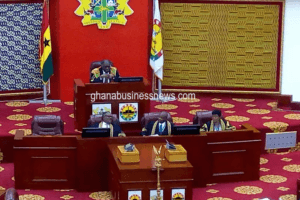MP advocates quota system for female candidates
 Ras Mubarak, Member of Parliament (MP) for Kumbungu, has appealed to Parliament and political parties in Ghana to adopt the gender quota system in favour of females to increase women representation in the Legislature.
Ras Mubarak, Member of Parliament (MP) for Kumbungu, has appealed to Parliament and political parties in Ghana to adopt the gender quota system in favour of females to increase women representation in the Legislature.
According to him, Ghana can learn from the examples of Rwanda, which has the highest number of female Members of Parliament in the world. The country has 61.3 percent female MPs in the Lower Chamber and 38.5 percent in the Senate.
Ras Mubarak, in statement on the floor of parliament, in Accra, noted that the issue of female under-representation in Parliament is a national problem that must not be swept under the carpet.
Currently, Ghana’s Parliament has a total of 275 members, of which 236 are male MPs and the rest (39) are female MPs.
Ras Mubarak explained that in Latin America, there were as many as 14 countries that had a “legalized gender quota” system for their parliaments.
The countries he said were; Argentina, Bolivia, Brazil, Colombia, Costa Rica, Dominican Republic, Ecuador, Guyana, Honduras, Mexico, Panama, Paraguay, Peru and Uruguay.
He said Ghana stands the risk of waking up one day to an all-male parliament, if the country did not act, adding that others had taken action and succeeded.
He argued that to give proper meaning to the country’s democracy and justice within, there is the need to build a fairer society.
“It seems unjust that in a 275 member chamber, only just 39 are females,” he said.
Ras Mubarak also charged the country not to be at the forefront of encouraging women to stand for elections, but have positive discrimination strategies in place by all the political parties.
He said there was no record of official discrimination against female candidates by any political party in country, but Ghanaian women were however not putting themselves up to contest elections.
Ras Mubarak further called on the Speaker of Parliament, Prof Aaron Mike Oquaye not to only conduct research into why Ghanaian females do not put themselves up for public office, but to send teams of MPs and the Young Parliamentarian Caucus among others, to countries like Norway to learn about their gender quota system in selecting female MPs.
He said the study would go a long way to help parliament and the political parties to implement.
“I believe that an increase in the number of female MPs would bring increased focus on issues affecting women and children,” he added.
Mr. Patrick Boamah, MP for Okaikoi Central in a comment on the statement, said woman could occupy other equally important positions and not just parliament.
Mrs. Helen Ntoso, MP for Krachi West in her contribution stated that Ghana was among the countries that signed unto the United Nation (UN) Sustainable Development Goals (SDGs).
She stated that in order to achieve gender equality in Ghana, “We must do more to achieve goal five of the SDGs, which talks about equality and women empowerment.”
Mr. Samuel Okudzeto Ablakwa, MP for North Tongu, called for the Affirmative Action Bill to be treated with the same urgency as the Right to Information Act. He said the passage of the Affirmative Action Bill would go a long way to address some of the critical problems affecting women in the country.
Source: GNA
